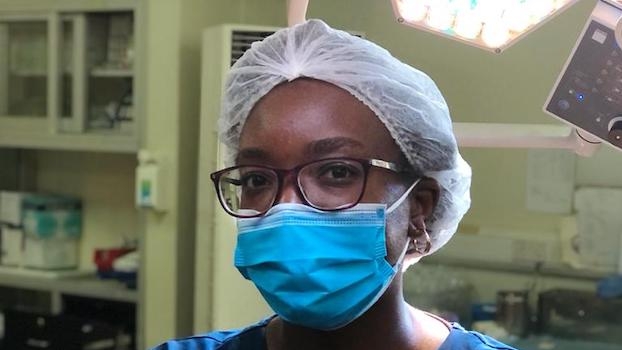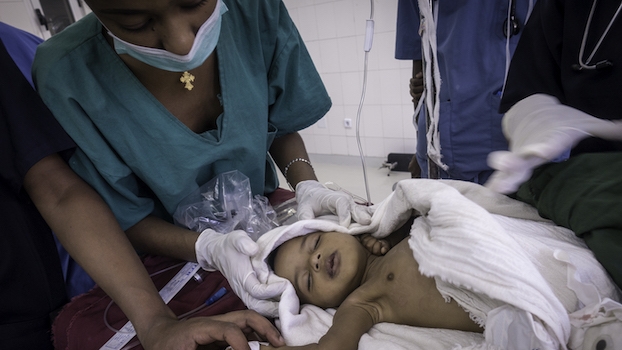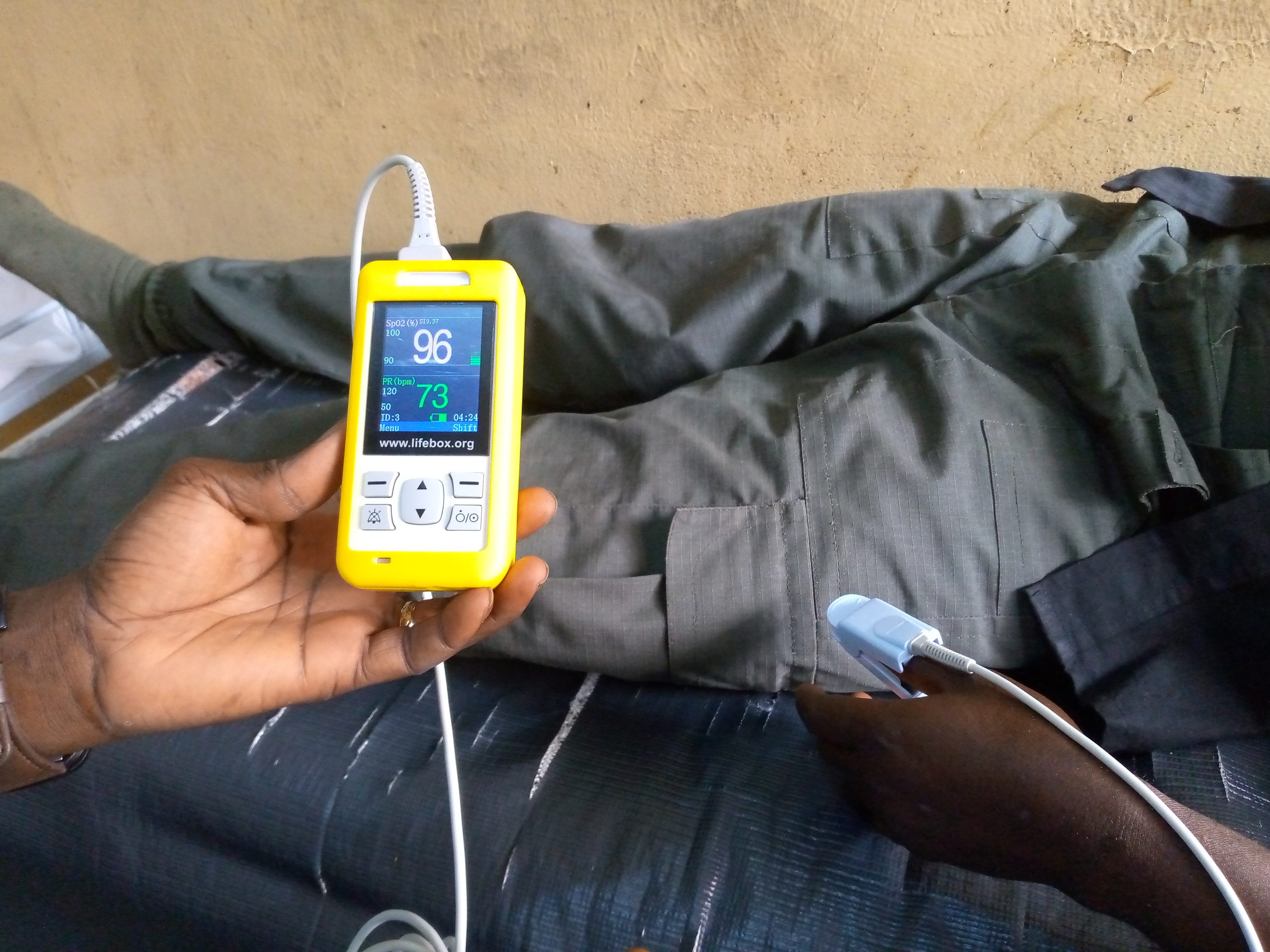
Pulse Oximeter Use in COVID-19
A critical tool in the management of COVID-19 patients.
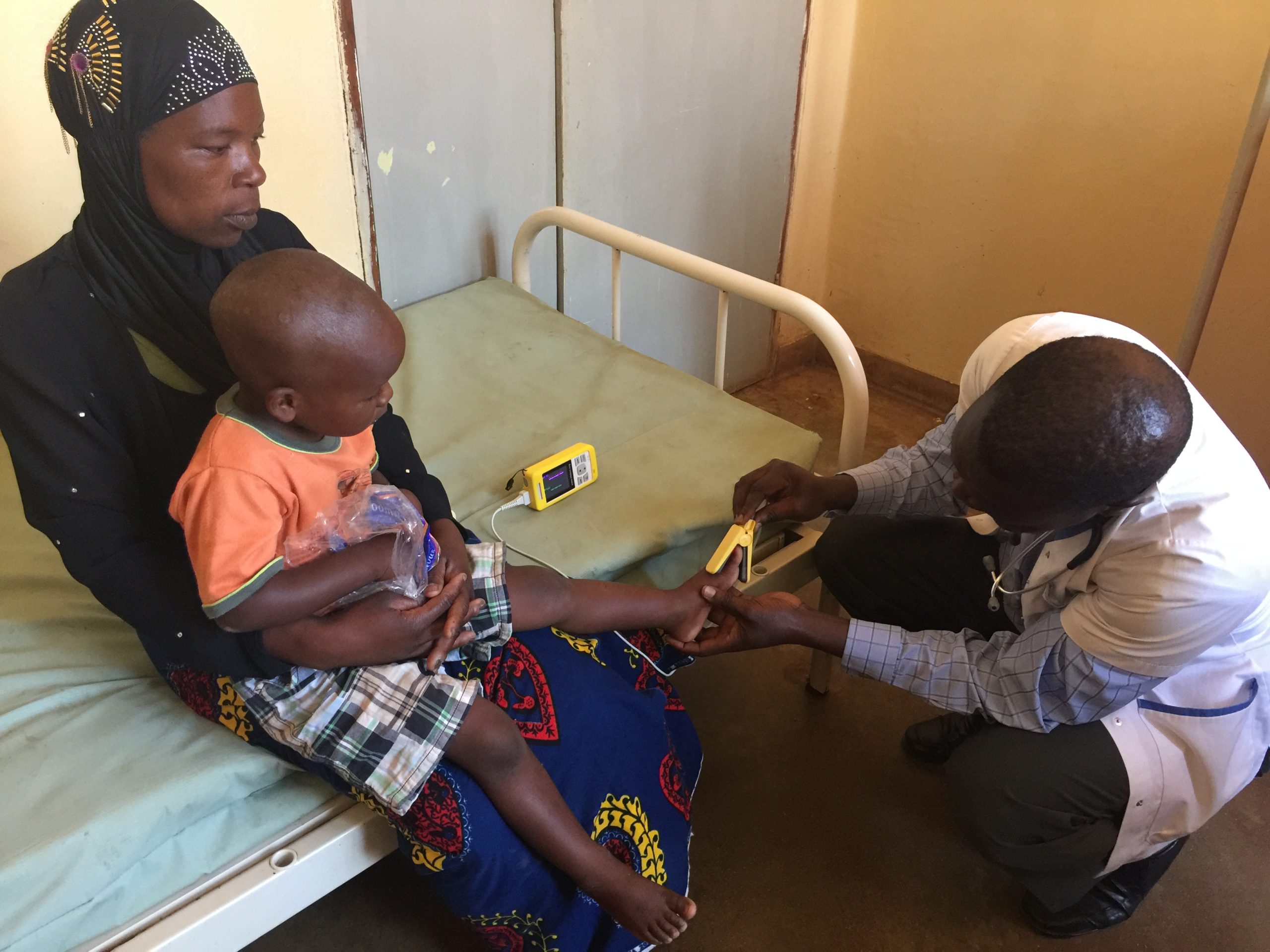
Lifebox, a global leader in oxygen monitoring technology for low-resource settings, developed an innovative pulse oximetry probe designed for children under the age of five.
FACT SHEET DESIGN INFO VIDEOS MEDIA ADVISORY PRESS RELEASE
Pneumonia is the leading infectious cause of death in children under five, killing almost 1 million worldwide each year. Hypoxemia (low blood oxygen level) is a critical factor in diagnosis, making pulse oximetry a vital tool in early treatment. Access to pulse oximetry at the community and healthcare facility level informs hospital referral, treatment such as oxygen therapy, and long term case management.
The Lifebox oximeter and neonatal probe were specially designed for use in low-resource settings. We know, however that it can sometimes be harder to get a reading on young patients when they are not under anesthesia.
Developed with support from the Bill & Melinda Gates Foundation, Lifebox redesigned the Lifebox oximeter and neonatal probe to optimize its use for babies and young children. Robust, reliable, and affordable when manufactured, it has the potential to radically improve access to oxygen monitoring worldwide – and help to save tens of thousands of lives. This work to improve the Lifebox pulse oximeter not only optimized its use for diagnosis of pneumonia, but in the process, improved the oximeter as a better tool for anesthesia safety.
Frontline healthcare workers in Bangladesh and Malawi were consulted at every step through a human-centered design process – designing technology for the user, by the user.
Multi-language education materials are available to support frontline healthworkers in critical decision-making.
This work was led by Drs Iain Wilson and Isabeau Walker, Lifebox Emeritus trustees, in collaboration with Dr Nick Boyd at Great Ormond Street Hospital for Children NHS Foundation Trust (GOSH), Dr Carina King at the Institute for Global Health (IGH) at University College London (UCL), Dr Eric McCollum at Johns Hopkins University and local NGOs and government in Bangladesh and Malawi. Additional support from Mike Berstein at Physio-Monitor and Linda Cheng at Acare. End-user consultations were coordinated by NGO partners working with IGH and Johns Hopkins University.
A new pulse oximetry probe design for use in low-resource settings, developed in collaboration with healthcare workers in Bangladesh and Malawi, could play a critical role in saving young children from pneumonia - a leading killer of under-5s worldwide.
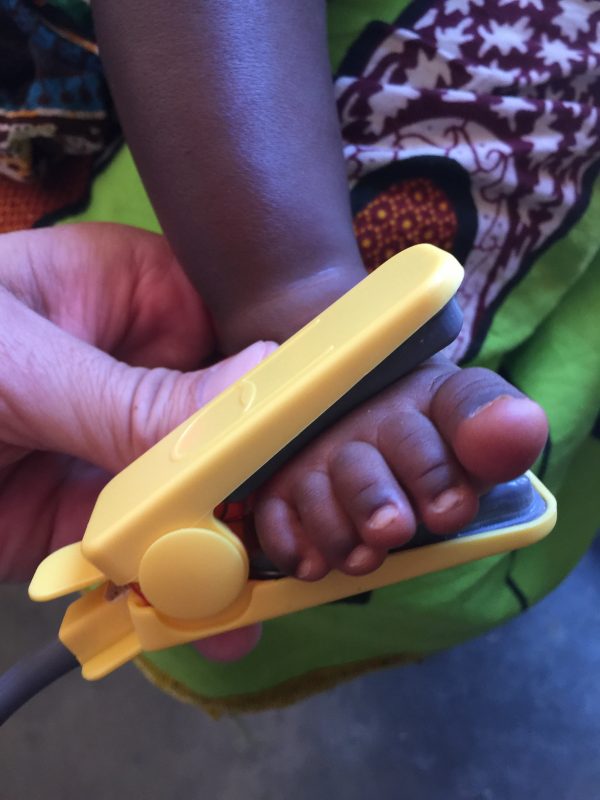
Pediatric probe testing in Malawi

A critical tool in the management of COVID-19 patients.
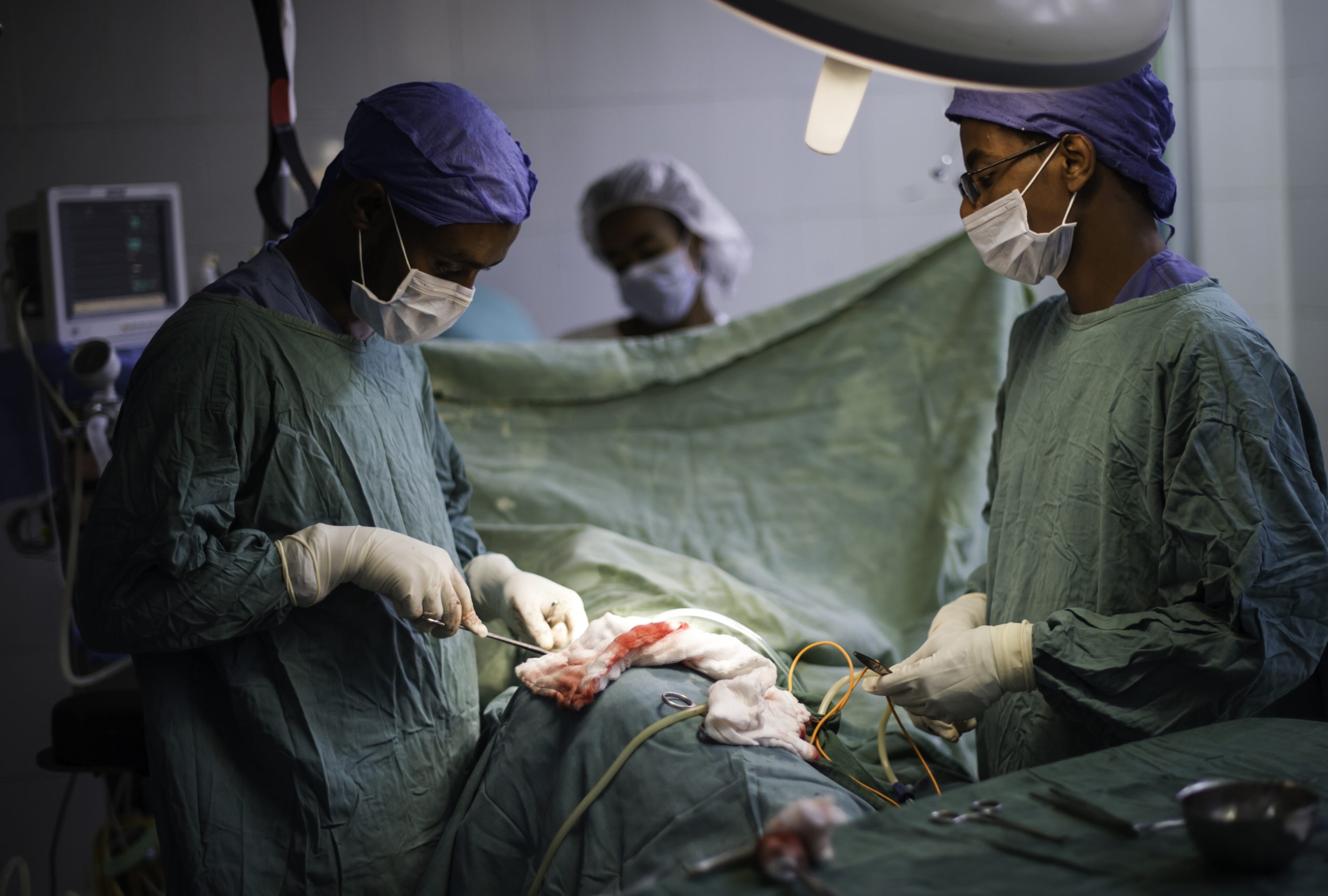
Saving lives through safer surgery and anesthesia
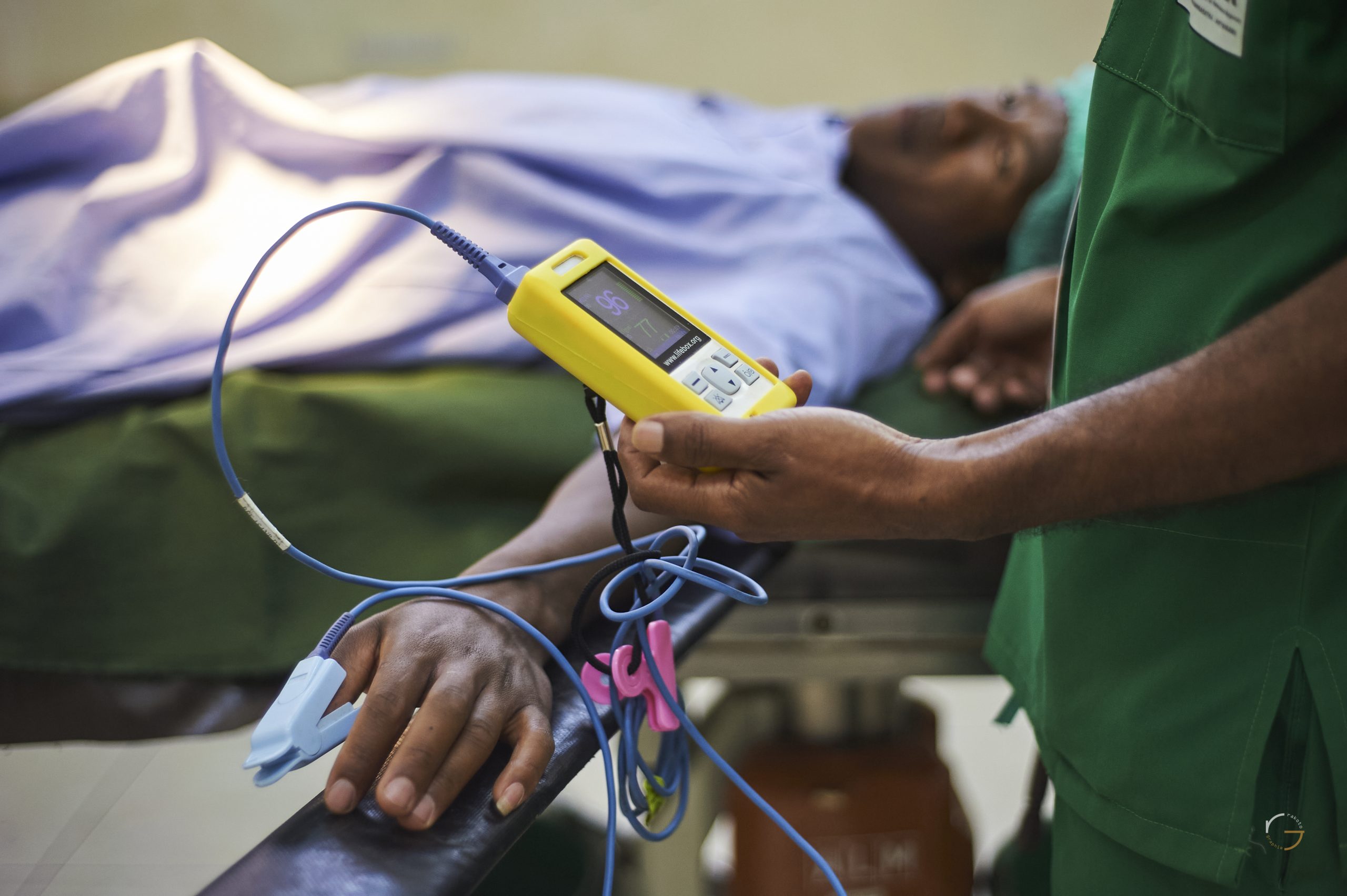
Patient monitoring with pulse oximetry
